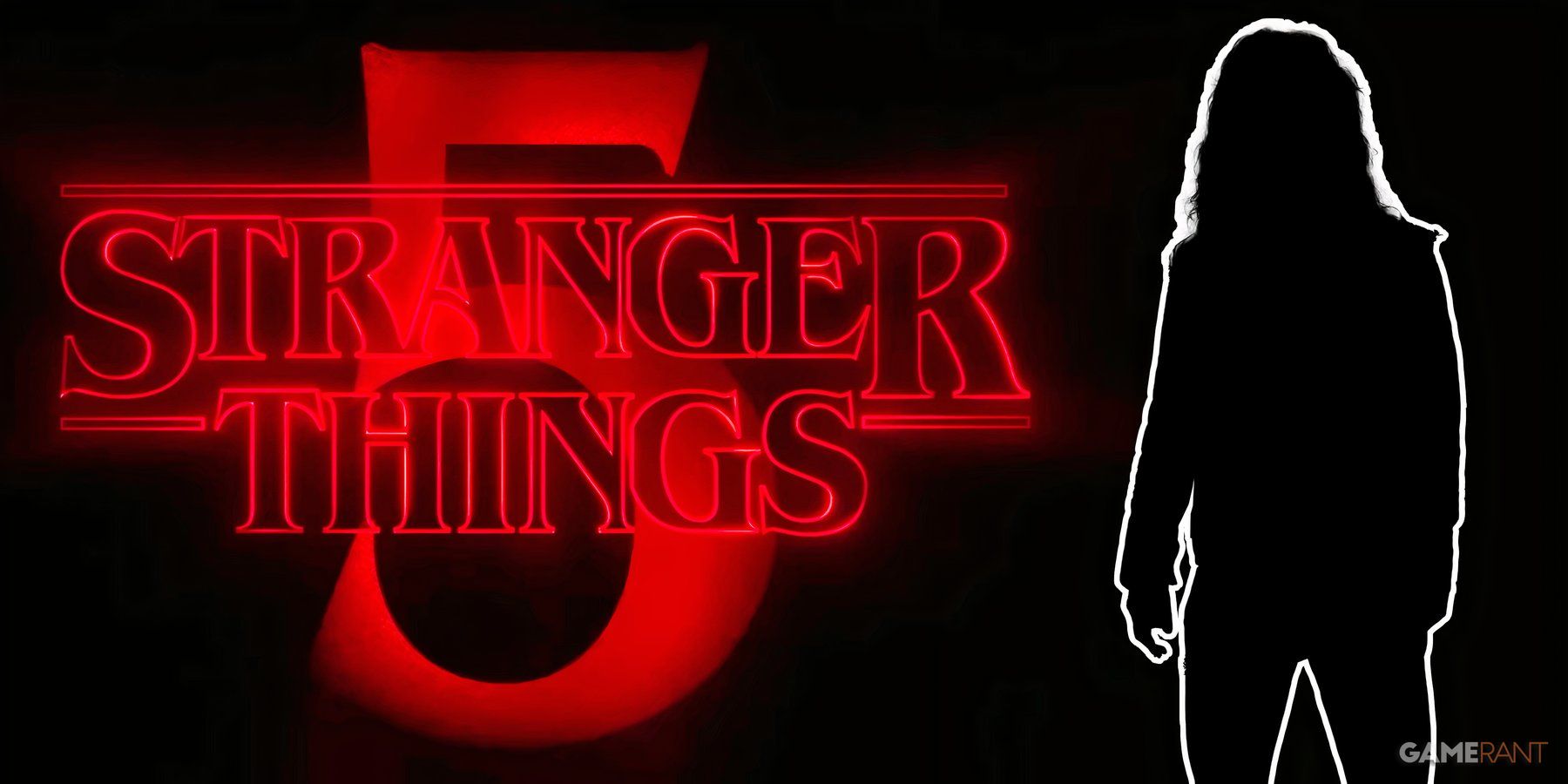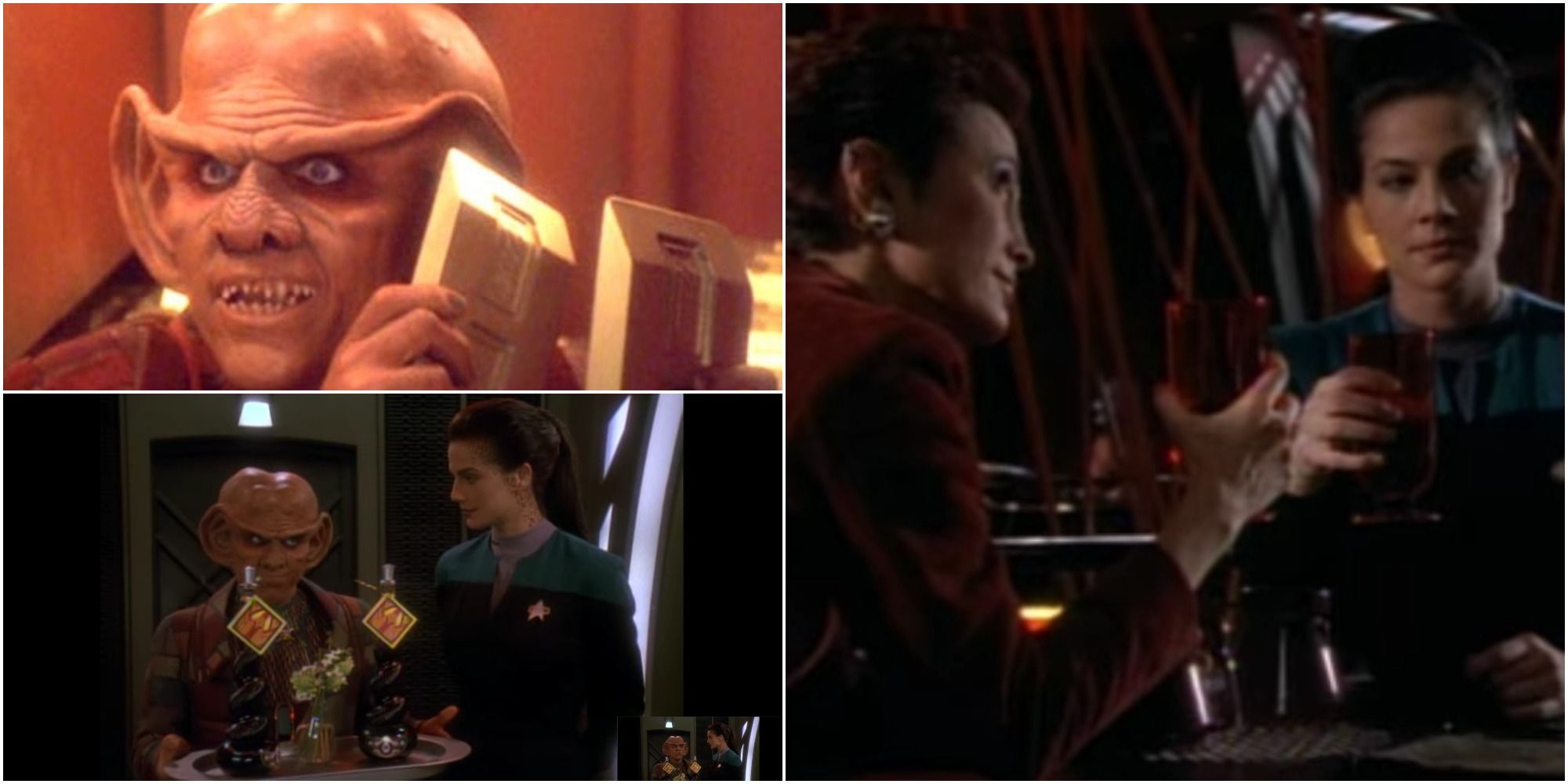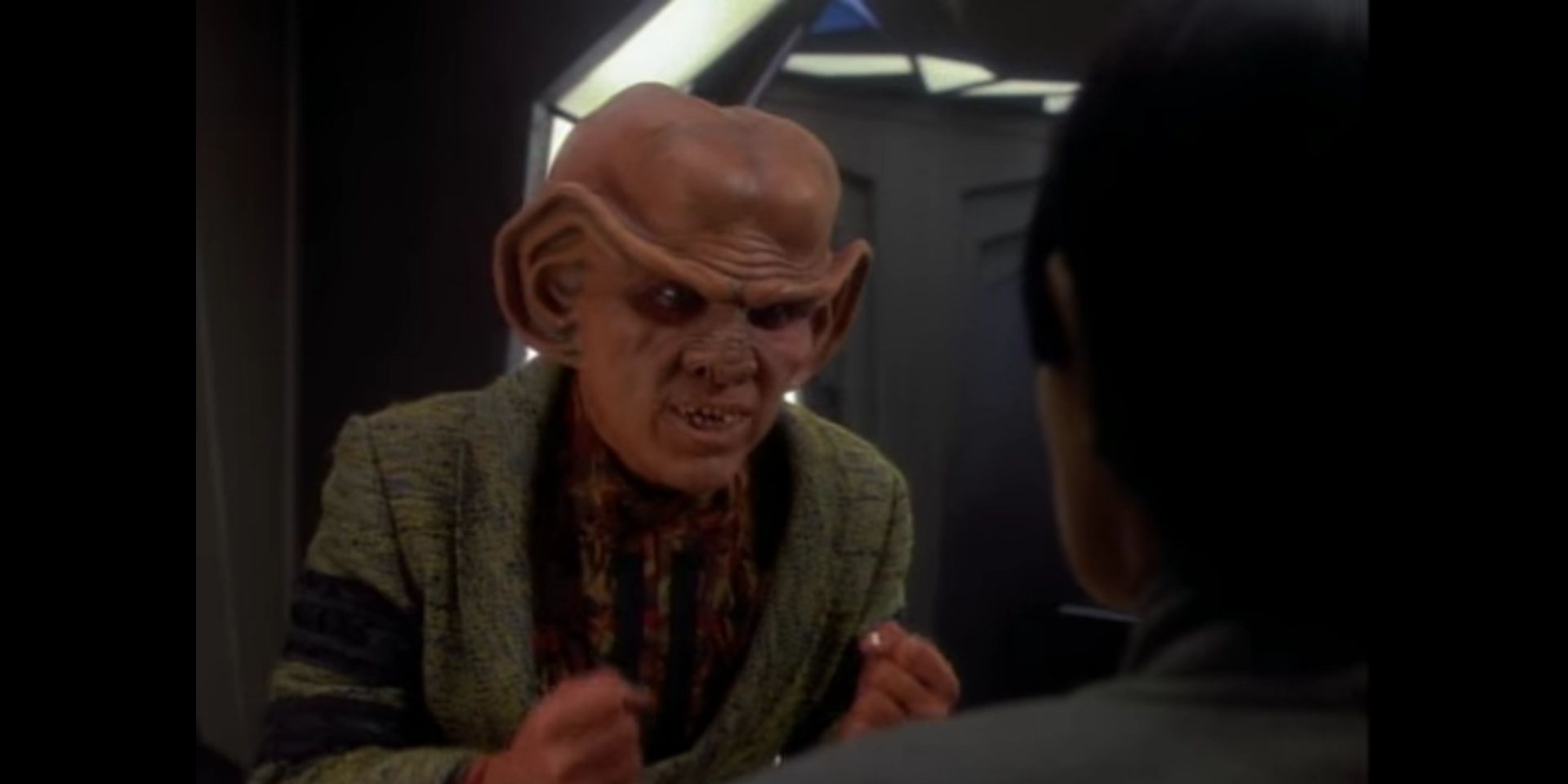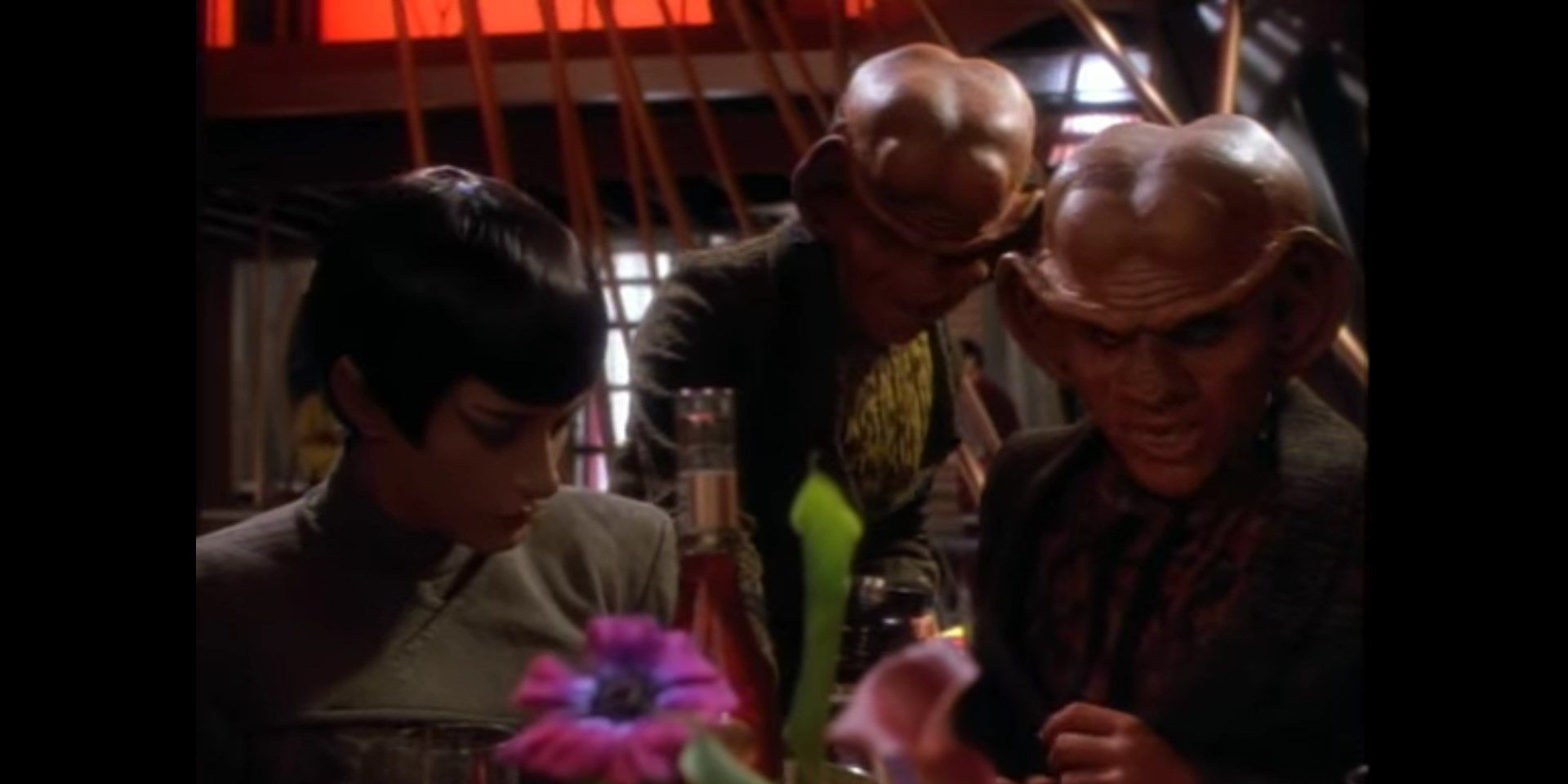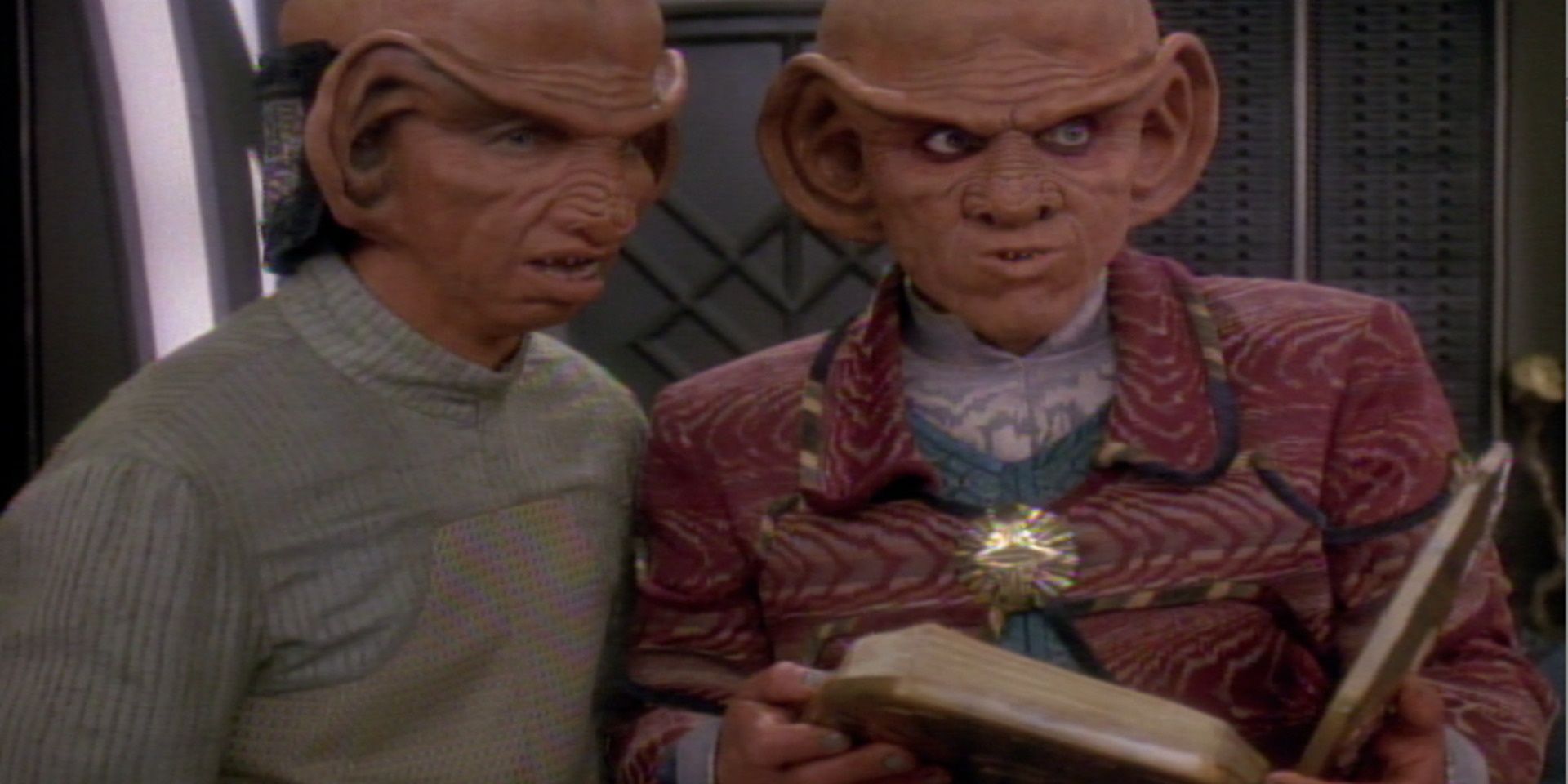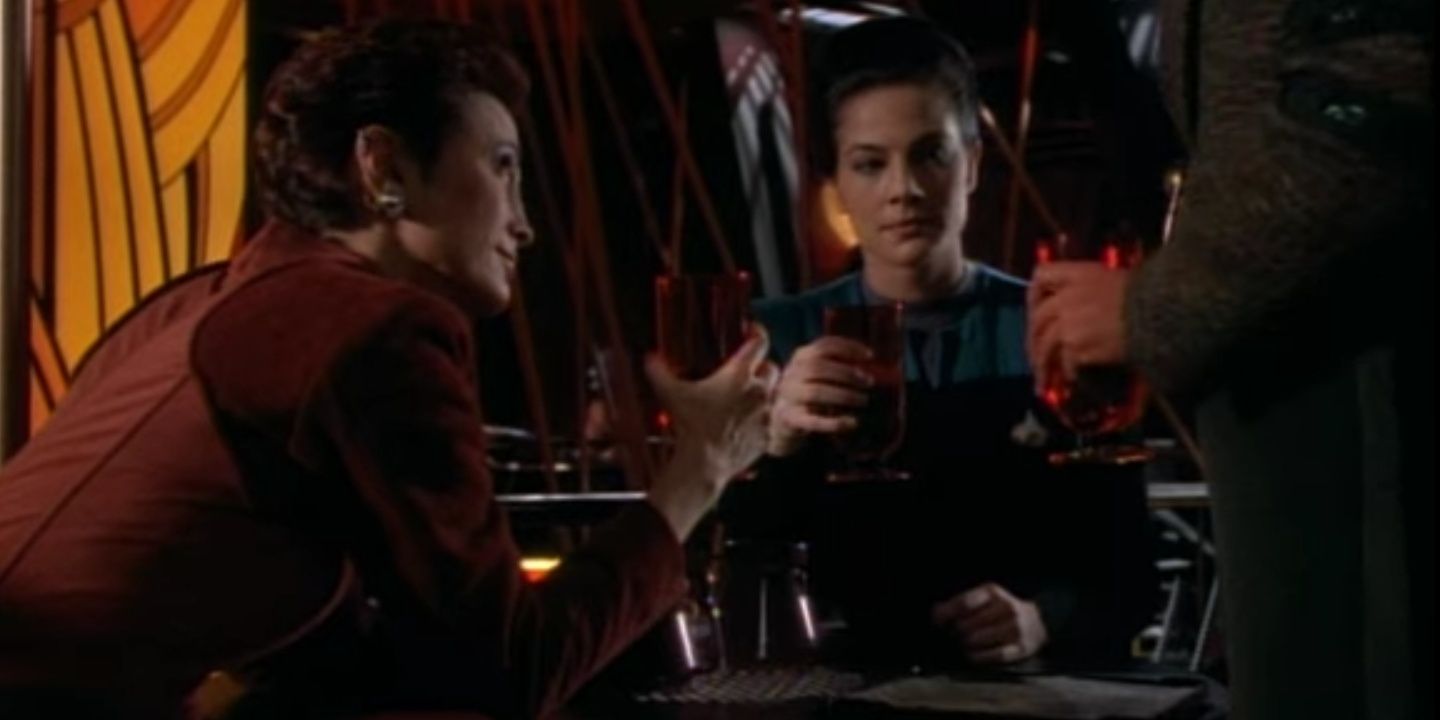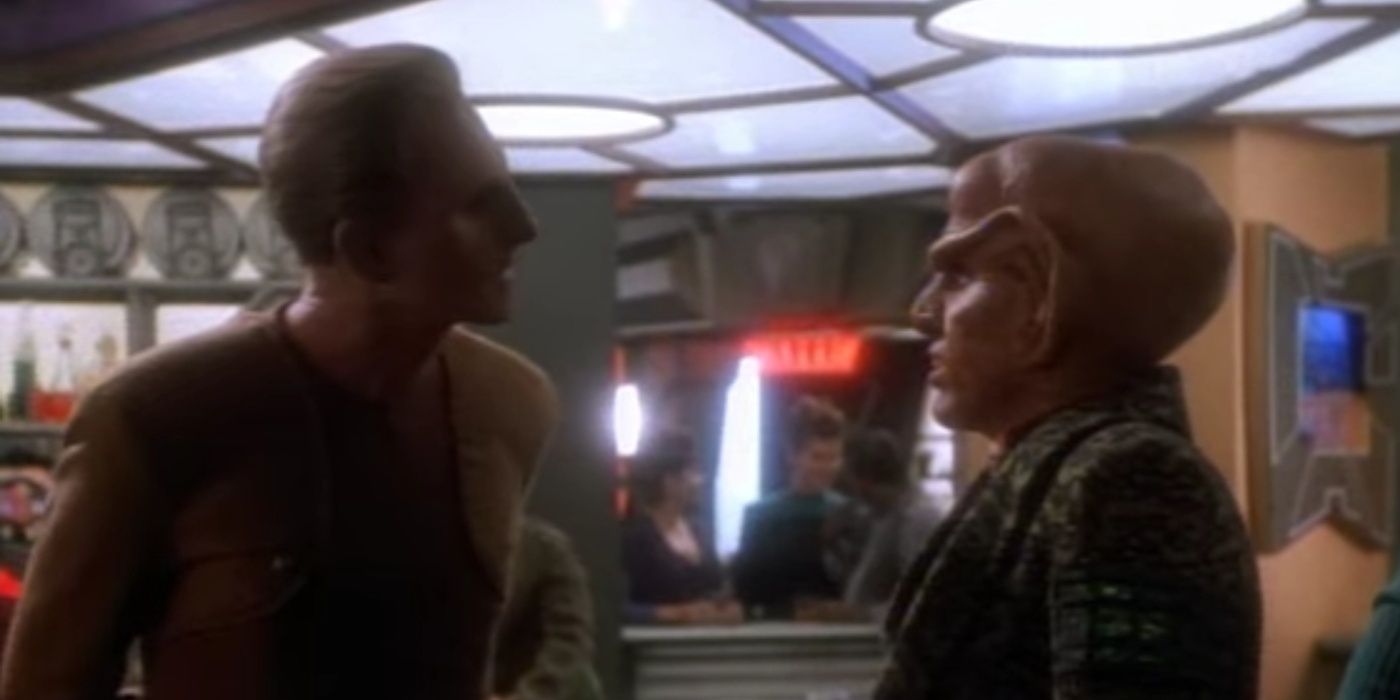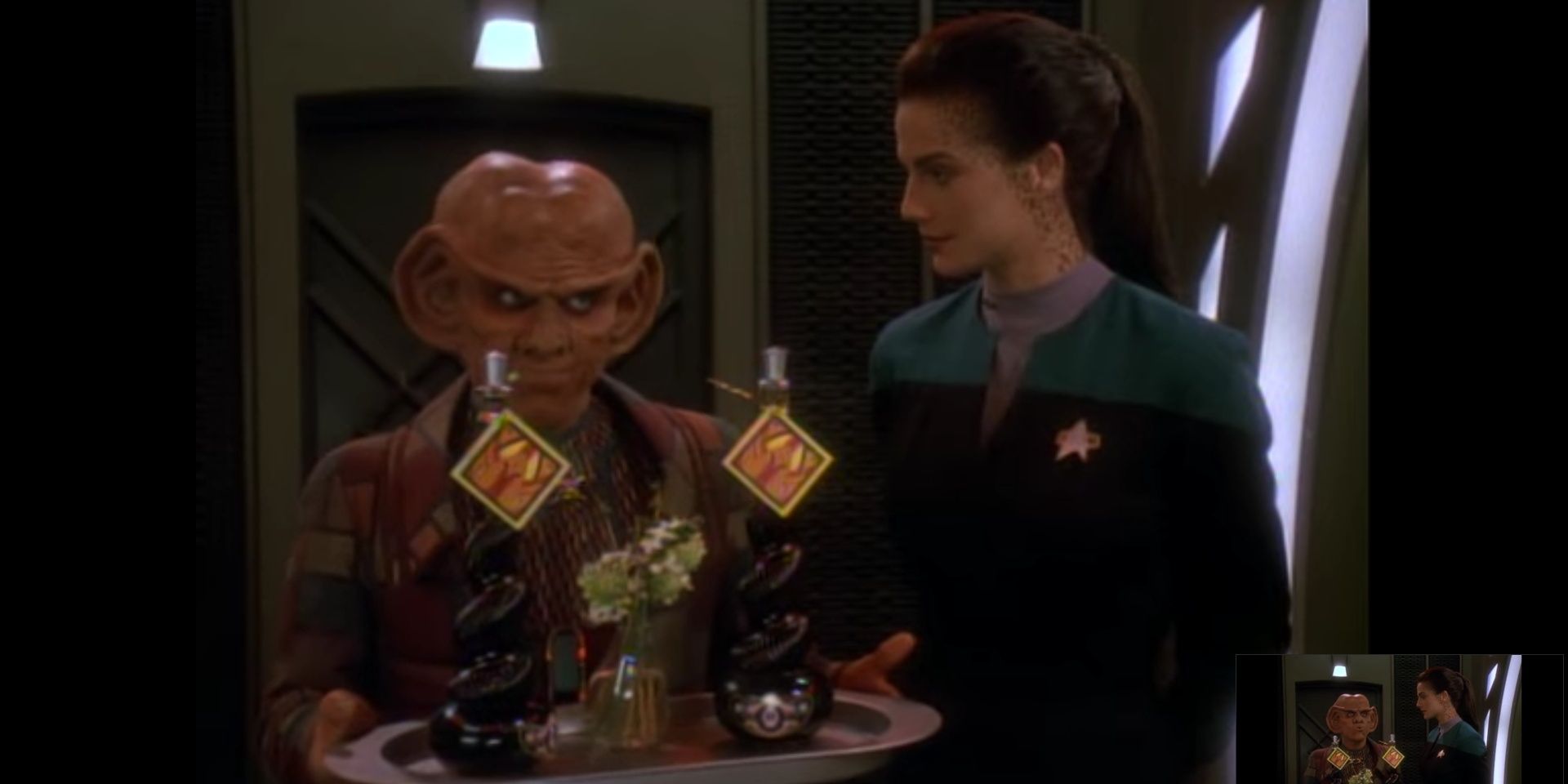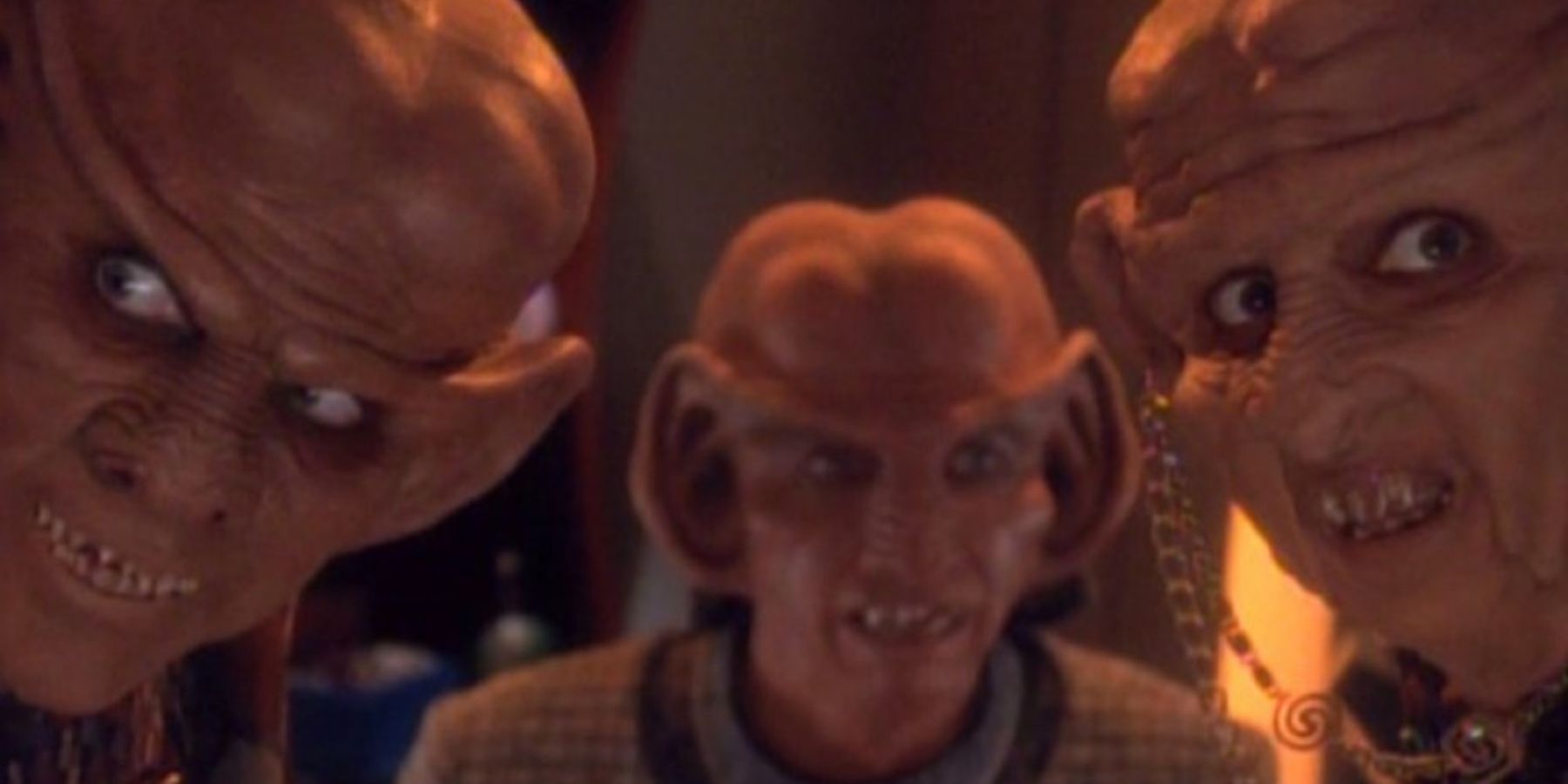Throughout the franchise’s history, Star Trek has hosted diverse alien species. One that has evolved throughout the franchise is the Ferengi, which were once meant to be the big villains for Star Trek: The Next Generation.
Governing Ferengi society are the 285 Rules of Acquisition, which ensure a fair business deal for all parties involved — or most parties, as Star Trek: Deep Space 9’s bartender Quark explains. While the rules are specifically designed for business practices, several of them also have applications in other life scenarios.
8 Rule 3: Never Spend More For An Acquisition Than You Have To
This rule is notable not just because it is common sense business practice, but also because Quark used it to convince Sakonna, a Vulcan member of the terror cell the Maquis, that escalating a conflict against the Cardassians was “illogical.” According to Quark, committing acts of violence would only make peace more expensive in the long run.
Everything has a price, and not just in a monetary sense. Sure, it is possible to achieve something, but what sacrifices would one have to make in the long run? It is essentially the Law of Equivalent Exchange. One has to weigh an acquisition with its potential cost.
7 Rule 214: Never Begin A Business Negotiation On An Empty Stomach
When the Vulcan Sakonna approaches Quark with a business proposition, Quark seizes the opportunity to date the Vulcan in the guise of a negotiation. His subservient brother brings a bottle of wine to the table, and Quark quotes the 214th Rule of Acquisition: never begin a business negotiation on an empty stomach.
This is a reason that, when world leaders meet, they share an often extravagant meal. Food is one thing that all nations and alien species have in common. When stomachs are filled, it makes them more relaxed, more amenable to discussions. Plus, food makes people happy, except maybe when it is gagh.
6 Rule of Acquisition 74: Knowledge Equals Profit
Good businesspersons must learn as much as possible about their work. They must learn what they are selling, how to market it, who their customer base is, and what the latest trends are. It does not make sense to go into battle without having a plan of attack.
Knowledge equals profit, not just financially, but in terms of life opportunities. When one is rich with knowledge, the world becomes an open plain, with nearly limitless possibilities to achieve all kinds of wonders. One can never be too sure when learning about any given subject might come in handy.
5 Rule 9: Opportunity Plus Instinct Equals Profit
Though knowledge equals profit, it can only take a person so far. Sometimes, the choice is not so obvious in life, so the only thing individuals can do is listen to their gut. People have an intuition, a moral compass, which helps them point themselves in the right direction in life.
Oftentimes, everyone ignores this little whisper, believing that listening to it might not be strictly logical, but it is hard to judge where the future will take someone. Sometimes, one has to just take a chance.
4 Rule Of Acquisition 57: Good Customers Are As Rare As Latinum. Treasure Them.
When running a business, profit is the central motive. It can be tempting to milk customers for all they are worth, to sell the lowest quality item for as much as possible, to obtain a maximum profit margin. Even if that temptation is there, it is also important to remember that customers are not simply sources of latinum, they are also people.
A business owner must appreciate the customers that put their time and money into their work. Without the customers, there would be no business. One must always treat customers with respect, and give them a deal that is worth their latinum. Any of them could be gone the next day, so it is essential to show one’s appreciation for them when able.
3 Rule 76: Every Once In A While, Declare Peace. It Confuses The Hell Out Of Your Enemies
Deep Space Nine bartender Quark uses this rule against the station’s security chief, Odo, when the Ferengi gives him information about an illegal transport operation. To Odo’s amazement, Quark for once told him the truth. He would reveal afterwards that it was all in accordance with the 76th Rule.
Sometimes, it is good to declare peace. Most people have someone that they do not like in their lives, but sometimes, it is worthwhile just to be nice. It is not worth staying angry all the time. It just weighs one down. Also, declaring peace means another potential candidate from whom to obtain profit.
2 Rule 35: Peace Is Good For Business (Not To Be Confused With Rule 34: War Is Good For Business)
When two Cardassian scientists visit Deep Space Nine in the peace between the Cardassians and the Bajorans, Quark brings up a couple of bottles of Cardassian Kanar to invite them to his bar. He envisions the business opportunities that will come with Cardassians living and working amongst the Bajoran people that they had once occupied.
While war is often big bucks for weapons manufacturers, that does not mean there is no room for business in times of peace. The overarching theme of Star Trek is that different species and cultures could find common ground and cooperate for everyone’s benefit. Profit is not obtainable solely from guns.
1 Rule 284: Deep Down, Everyone Is A Ferengi
The Ferengi are a species obsessed with money. Their strictly capitalist society is based on the acquisition of profit, and they are always looking for an opportunity to make a little extra latinum.
This rule, ripped straight from the book “Legends of the Ferengi” by Irah Steven Behr and Robert Hewitt Wolfe, is truer than some would like to admit. People tend to have a little Ferengi in them, even though they don’t always like to admit it. Everyone works in the service of money, to just scrape by for another month. Many also look up to the billionaires of industry, envying their lavish lifestyles, as well as craving the freedom that comes with cutting out their own living.



